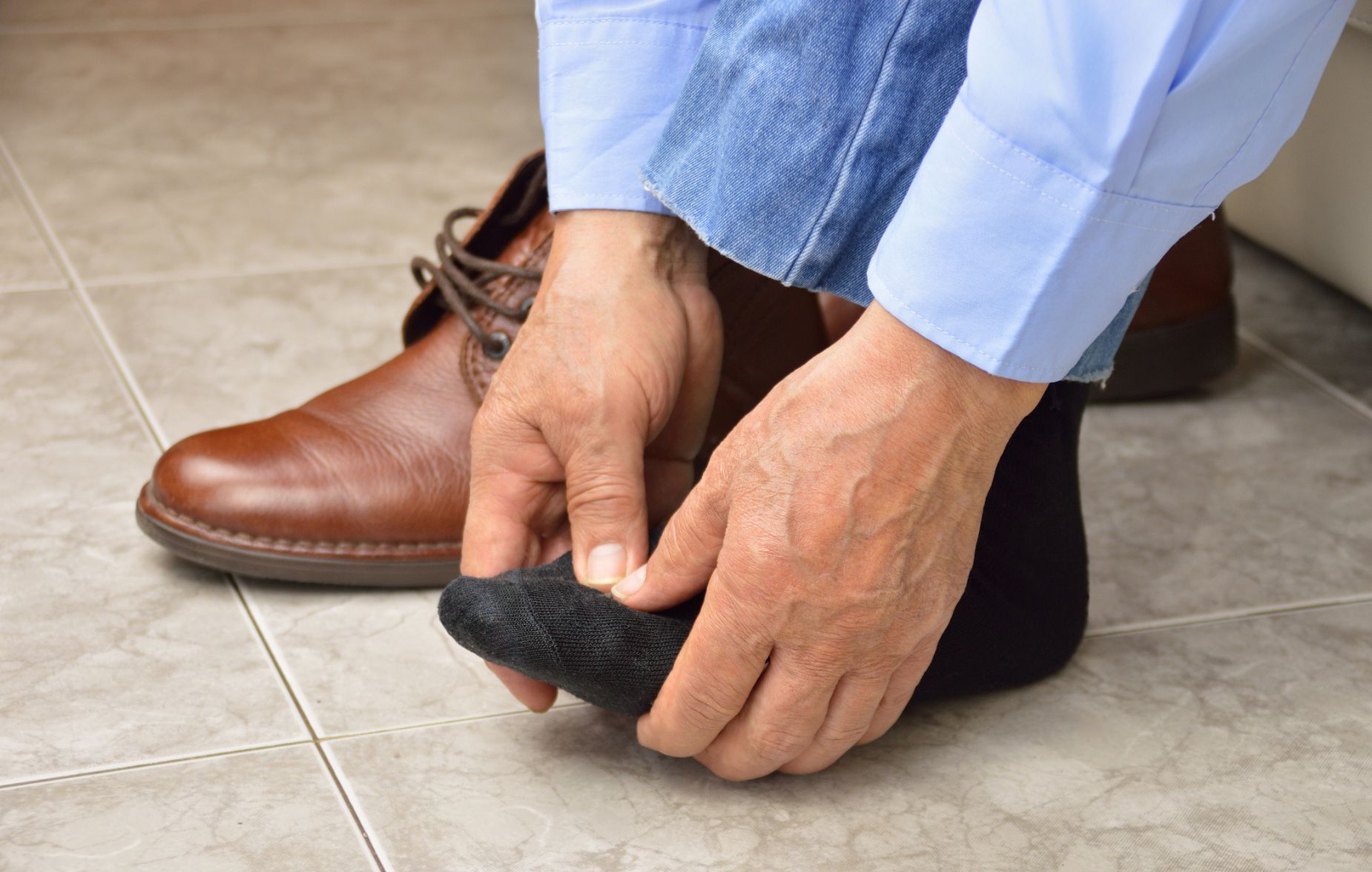Diabetic neuropathy is one of the most common complications of diabetes, affecting up to 50% of people with the condition. When blood sugar levels remain elevated over time, they can damage the nerves, particularly in the feet. This can lead to symptoms like pain, tingling, numbness, or a loss of sensation. Left untreated, diabetic neuropathy in feet can increase the risk of ulcers, infections, and even amputation.
While diabetic neuropathy can’t be fully reversed, there are effective treatments available to manage symptoms, improve quality of life, and protect foot health. Here, we’ll explore the best treatments and strategies for managing diabetic neuropathy in the feet.
A Closer Look at Diabetic Neuropathy

Diabetic neuropathy occurs when prolonged high blood sugar levels damage the nerves. In the feet, this condition can lead to sensory, motor, or autonomic nerve damage. Symptoms vary from person to person but may include:
- Pain or burning sensations: Some patients describe it as sharp, stabbing, or throbbing pain.
- Numbness or tingling: A loss of sensation may make it hard to feel injuries or temperature changes.
- Muscle weakness: Damage to motor nerves can lead to difficulty walking or maintaining balance.
- Loss of reflexes: Reduced nerve signals can diminish coordination and increase the risk of falls.
These symptoms can disrupt daily life, making it essential to seek treatment to alleviate discomfort and prevent further complications.
Medical Treatments for Diabetic Neuropathy in Feet
Blood Sugar Management
The cornerstone of treating diabetic neuropathy is controlling blood sugar levels. By keeping glucose levels within a healthy range, you can slow the progression of nerve damage and, in some cases, reduce symptoms.
- Medications: Your doctor may prescribe insulin or oral medications to help stabilize blood sugar levels.
- Diet: A diabetes-friendly diet focusing on whole grains, lean proteins, and vegetables can help manage glucose.
- Exercise: Regular physical activity improves circulation and helps regulate blood sugar.
Medications for Nerve Pain
Neuropathy-related pain can significantly impact daily life. Several medications are available to help manage pain, including:
- Anticonvulsants: Medications like gabapentin and pregabalin can reduce nerve pain by calming overactive nerve signals.
- Antidepressants: Certain antidepressants, such as amitriptyline or duloxetine, have been shown to relieve neuropathy pain.
- Topical treatments: Capsaicin cream or lidocaine patches can be applied directly to the affected area to reduce discomfort.
It’s important to consult your doctor before starting any medication, as each option comes with potential side effects and considerations.
Physical Therapy
Physical therapy can be a valuable part of managing diabetic neuropathy, particularly if motor nerves are affected. Therapists can guide you through exercises to improve strength, flexibility, and balance, reducing the risk of falls and other injuries.
Electrical Stimulation
Transcutaneous electrical nerve stimulation (TENS) therapy uses low-voltage electrical currents to reduce nerve pain. This non-invasive treatment can help block pain signals and improve circulation in the affected area.
Custom Orthotics
Orthotic shoe inserts can provide additional support, reduce pressure on the feet, and improve overall comfort. For patients with neuropathy, orthotics can prevent calluses, blisters, and ulcers caused by poor foot alignment or uneven pressure.
Surgical Options
In rare cases, surgery may be recommended to relieve pressure on compressed nerves or address complications like foot deformities. This is typically considered a last resort when conservative treatments have not been effective.
Lifestyle Changes to Manage Neuropathy
While medical treatments play a key role, making certain lifestyle changes can also help manage diabetic neuropathy in the feet.
Practice Good Foot Care
Daily foot care is essential to prevent injuries and complications. Tips include:
- Inspect your feet daily: Look for cuts, blisters, redness, or swelling.
- Keep your feet clean and dry: Wash daily with warm water and dry thoroughly, especially between the toes.
- Moisturize: Prevent dry skin and cracking, but avoid applying lotion between your toes.
- Trim nails carefully: Cut nails straight across and file sharp edges to prevent ingrown toenails.
Choose Proper Footwear
Well-fitted shoes are crucial for patients with neuropathy. Look for footwear that:
- Provides cushioning and support
- Reduces pressure on sensitive areas
- Fits properly without causing rubbing or squeezing
Quit Smoking
Smoking reduces blood flow to the extremities, which can worsen neuropathy symptoms and slow healing. Quitting can improve circulation and help protect your feet.
Stay Active
Regular exercise helps improve circulation, strengthen muscles, and reduce blood sugar levels. Low-impact activities like walking, swimming, or yoga are excellent choices for patients with neuropathy.
Alternative Treatments
For some patients, alternative therapies can complement traditional treatments. While more research is needed, the following options may help:
- Acupuncture: This ancient practice may reduce nerve pain and improve circulation.
- Alpha-lipoic acid: This antioxidant supplement has shown promise in reducing neuropathy symptoms in some studies. Always consult your doctor before starting supplements.
- Massage therapy: Regular foot massages can help reduce tension, improve circulation, and alleviate pain.
When to See a Podiatrist for Diabetic Neuropathy in Feet
If you’re experiencing symptoms of diabetic neuropathy, it’s important to seek care from a podiatrist. Early intervention can help prevent complications like ulcers, infections, and falls. A podiatrist can assess your symptoms, recommend personalized treatments, and guide you on how to protect your foot health.
At Sheehy Ankle & Foot Center, we specialize in diabetic foot care and neuropathy management. From addressing nerve pain to preventing complications, we’re here to help you maintain your mobility and quality of life.
Take Control of Diabetic Neuropathy Today
Living with diabetic neuropathy doesn’t have to mean living in pain. With the right treatments and proactive care, you can manage your symptoms and protect your feet from further damage. Contact Sheehy Ankle & Foot Center today to schedule an appointment and learn more about your options for managing diabetic neuropathy. Together, we’ll create a personalized plan to keep your feet healthy and comfortable.
